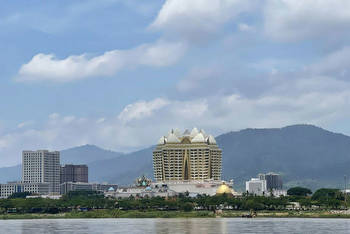RM5 billion iIlegal gambling bane
PETALING JAYA: The government is losing a staggering RM5 billion annually due to illegal gambling activities in the country.
According to Ravi Balakrishnan, a chartered accountant, tax consultant and lecturer at a private university, illegal gambling – both physical and online – has many negative effects.
“A few countries such as Japan are looking into legalising online gambling under specific rules and locations while increasing enforcement to stamp out illegal activities.
“In Malaysia, controls are in place for “Number Forecast Operators”, which provide the government with revenue,“ he said, adding that there must also be active enforcement to eradicate illegal gambling operators, that are a bane to the country.
“Tax leakage resulting from illegal gambling will affect the funding of crucial public services such as education and affordable housing, healthcare and infrastructure development.
“Just imagine, with the RM5 billion being lost annually due to illegal gambling activities, the government could build 52 new schools, provide RM100,000 scholarships to 50,000 students and build 33 24-storey police stations to enhance safety and security in the country.”
Monash University economics professor Dr Niaz Asadullah, who focuses on poverty and development studies, warned that the substantial leakage of funds could reduce the government’s capacity to invest in critical sectors.
“Long regarded as a thorn in the side of the authorities, illegal gambling has now taken centre stage due to its impact on tax revenues. Illegal gambling is also a pervasive issue that goes beyond the realm of tax revenue.”
Niaz said unofficial estimates suggest annual losses ranging from RM2 billion to RM5 billion, adding that on a global scale, trillions are expended annually in illicit betting markets, leading to substantial tax revenue loss for the countries concerned.
According to him, the substantial financial losses from illegal gambling exacerbate the challenges faced by the government in sustaining necessary expenditures during the ongoing economic recovery phase.
He also said the clandestine industry is weakening the economic stability of the country and poses threats to individual financial security, reputable business sectors and even Malaysia’s standing in the global arena.
Elaborating on the consequences beyond mere loss of tax revenue, Niaz said illegal gambling operations exploit vulnerable segments of society, such as youths and retirees, through social media platforms.
“The prevalence of illegal gambling platforms often intertwines with other (criminal) elements, including drug trafficking, human trafficking and the unlawful transfer of funds.
“Retirees often find themselves losing substantial portions of their savings, while youths engage in gambling with borrowed funds, subsequently resorting to (criminal) activities to alleviate the accumulated debt burden.”
Niaz said to compound the issue, many illicit gambling activities are facilitated by overseas syndicates operating through online platforms, leading to outflow of funds and loss of foreign exchange.
While saying that estimating the overall economic impact of illegal gambling in Malaysia is complex, he added: “It is clear that beyond the visible loss of tax revenue, the country faces weakened foreign exchange reserves and increased vulnerability to capital flight.
“The intertwining of illegal gambling with other illicit activities, such as the global trade in illegal cigarettes, also presents a reputational challenge for Malaysia as a top tourism destination and halal hub.
“Factors contributing to the persistence of illegal gambling in Malaysia are weak regulatory capacity, lack of public awareness regarding legal and illegal gambling forms, and poor digital literacy.
“This leads to people being susceptible to online scams related to gambling.”
He said addressing the prevalence of illegal gambling requires comprehensive measures, while preventing tax revenue loss necessitates bringing all licensed gambling activities into the formalised sector.
“This involves eradicating informal online and offline gambling operators and bolstering digital governance. We must also enhance literacy among groups vulnerable to gambling.
“Public awareness campaigns are crucial to clarify the distinction between lawful and criminal gambling activities.”
Niaz also said Malaysia could draw knowledge from successful international models and best practices in combating illegal gambling, adding that implementing stringent measures, effective regulations and public awareness campaigns have proven successful in curbing illegal gambling activities in several countries.
He said as Malaysia stands at the crossroads, policymakers face the daunting task of balancing the need for stringent enforcement with proactive regulatory measures.
“Crafting a comprehensive strategy to tackle the burgeoning illegal gambling industry requires the collaboration of law enforcement agencies and technology specialists.
“Addressing the issue is not only vital for economic stability but also to preserve the social fabric.”
Niaz said only through a concerted effort can Malaysia hope to curb tax revenue loss, protect its citizens from the social ills associated with illegal gambling and fortify the foundation of its economic future.
































